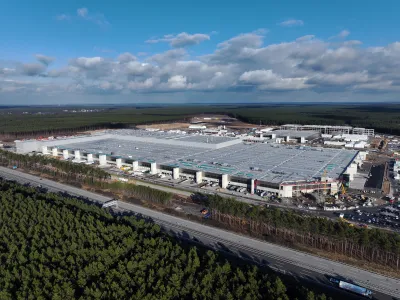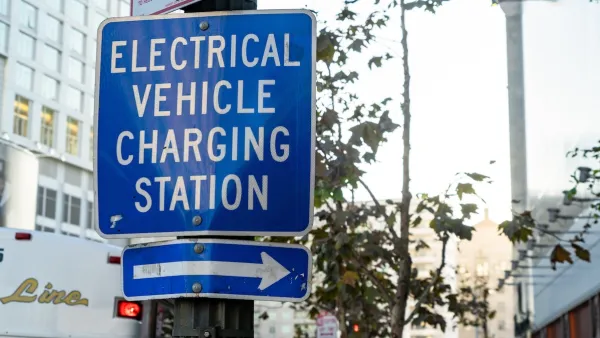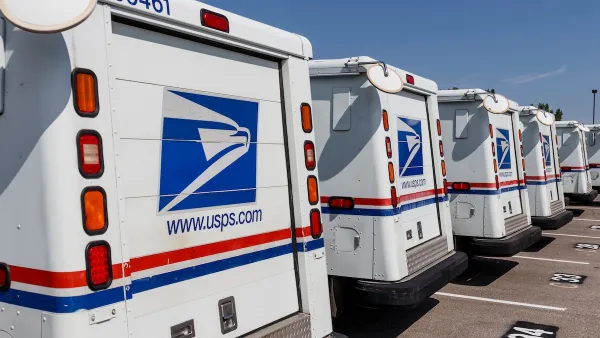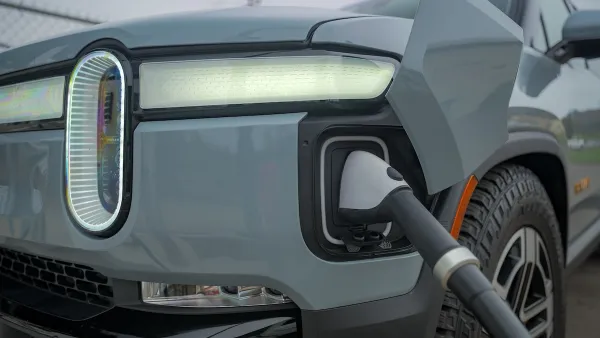Locals are employing a tool historically used for sports stadiums to ensure they benefit from the new project as much as the companies do.

Auto manufacturer Ford and a Korean company called SK Innovation have proposed an electric vehicle manufacturing complex in rural western Tennessee. Despite being promised 6,000 good-paying jobs, residents of surrounding towns are wary that the development will “change the community, suck up water and electricity, and prompt an influx of newcomers and development,” according to Katie Myers, a climate solutions fellow for Grist.
“They are only the latest to face uncertainties with energy transition projects, which, from solar fields to wind farms, have prompted reservations about their size, industrial activity, and environmental impacts. But rather than accept their fate, the constellation of towns orbiting Stanton are sitting down with Ford and SK to negotiate a binding agreement that will ensure they benefit from Blue Oval City as much as the companies do,” writes Myers.
The community benefit agreement—a tool historically used by communities dealing by entertainment and sports developments—is a binding contract between a corporation and a coalition of local organizations that gives the community legal leverage to make sure commitments are kept.
Myers reports that CBAs are increasingly being used to address clean energy developments like this one, with several being signed just in the last three years. “The contracts resulted in projects agreeing to give preference to local hires, and in companies sharing revenue with the county in which they operate. An offshore wind facility in Maine even underwrote rural broadband access.”
Stipulations these rural Tennessee communities want Ford/Blue Oval SK to abide by include resources like youth facilities, road maintenance support, and apprenticeship pathways run by local union chapter, as well as binding assurance of proper waste disposal.
Vonda McDaniel, the president of the Central Labor Council of Nashville and Middle Tennessee, who is helping to formulate Blue Oval agreement, CBAs are a great tool to “help ensure a measure of democracy in a part of the country where voter disenfranchisement, especially in rural, Black communities, is high and private interests have the ear of state government,” writes Myers.
However, for a CBA to be successful, a company has to sit down with the community—a step that hasn’t happened yet, though the local coalition are hopeful they’ll have an agreement drafted and sit down with Ford in the new year.
FULL STORY: A huge EV factory is coming to west Tennessee. Here’s how locals are ensuring they benefit.

Analysis: Cybertruck Fatality Rate Far Exceeds That of Ford Pinto
The Tesla Cybertruck was recalled seven times last year.

National Parks Layoffs Will Cause Communities to Lose Billions
Thousands of essential park workers were laid off this week, just before the busy spring break season.

Retro-silient?: America’s First “Eco-burb,” The Woodlands Turns 50
A master-planned community north of Houston offers lessons on green infrastructure and resilient design, but falls short of its founder’s lofty affordability and walkability goals.

Test News Post 1
This is a summary

Analysis: Cybertruck Fatality Rate Far Exceeds That of Ford Pinto
The Tesla Cybertruck was recalled seven times last year.

Test News Headline 46
Test for the image on the front page.
Urban Design for Planners 1: Software Tools
This six-course series explores essential urban design concepts using open source software and equips planners with the tools they need to participate fully in the urban design process.
Planning for Universal Design
Learn the tools for implementing Universal Design in planning regulations.
EMC Planning Group, Inc.
Planetizen
Planetizen
Mpact (formerly Rail~Volution)
Great Falls Development Authority, Inc.
HUDs Office of Policy Development and Research
NYU Wagner Graduate School of Public Service




























